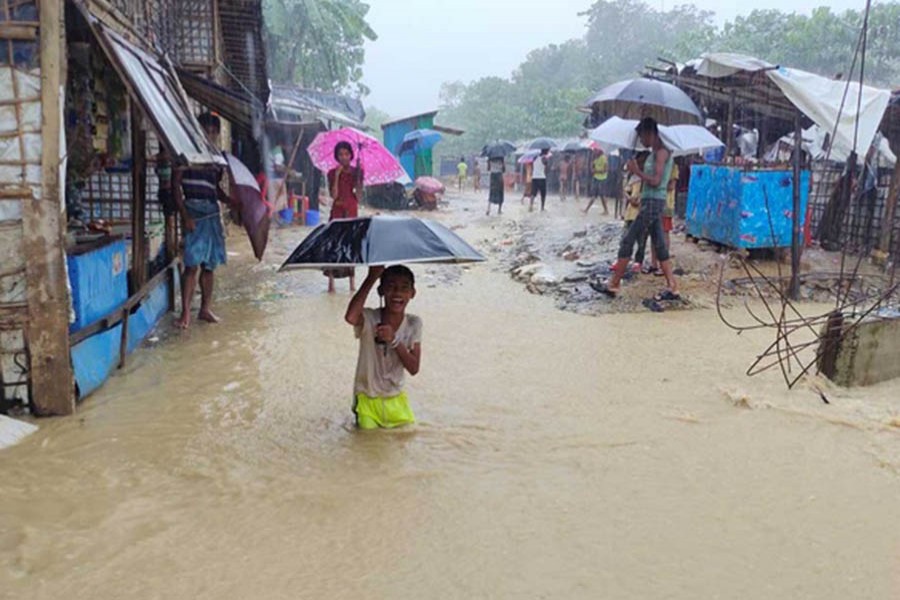Over 12,000 Rohingya refugees have been affected while some 5,000 refugees have temporarily been relocated to other family member’s shelters or communal facilities, according to the UN Refugee Agency.
Meanwhile, an estimated 2,500 shelters have been damaged or destroyed, said UNHCR.
Earlier, six Rohingya refugees died in the landslides as three days of heavy monsoon rains and strong winds pelted massive refugee sites in Bangladesh’s Cox’s Bazar on Tuesday, UNHCR said on Wednesday night.
“In the last 24 hours alone, over 300mm of rain fell on camps [...] that’s nearly half the monthly rainfall average for July in one day. More heavy downpours are expected in the next few days with the monsoon season stretching over the next three months.”
The situation is further compounded by the COVID-19 pandemic. There is currently a strict national lockdown in response to rising cases across the country, it added.
In support of the government-led response, UNHCR’s network of Emergency Response Teams have been deployed, to provide immediate support and assistance to affected families and to those forced to temporarily relocate.
The adverse weather, latest landslides, and floods further exacerbate the suffering and massive humanitarian needs of the Rohingya refugees.
To date, the 2021 Joint Response Plan (JRP) for the Rohingya humanitarian crisis in Bangladesh has received only US$274 million, roughly 30 per cent of the US$943 million required for the response this year.


